Indigenous Governance Database
Leadership
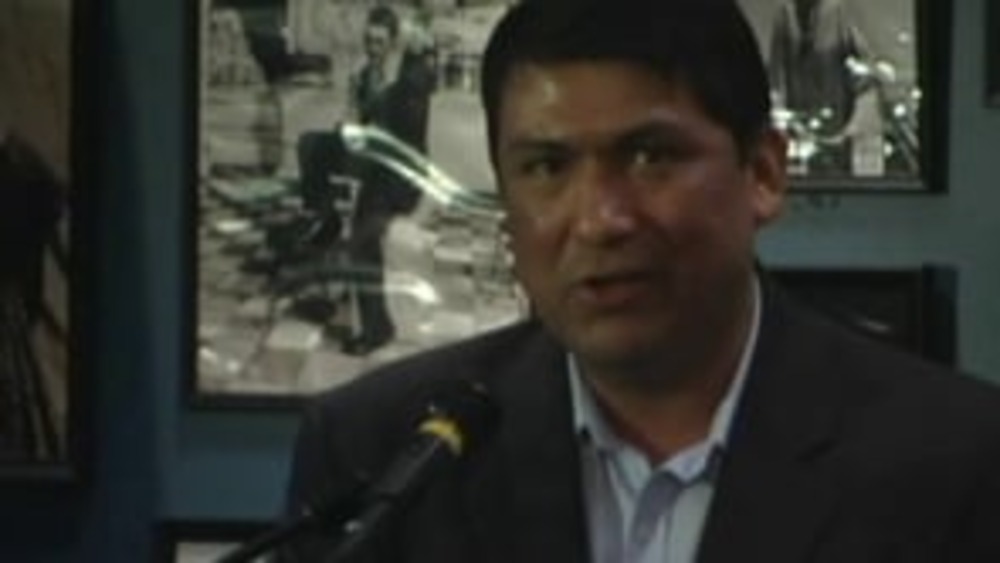
Honoring Nations: Gregory Mendoza: Akimel O'odham/Pee-Posh Youth Council
Gila River Indian Community Governor Gregory Mendoza, formerly the director of the Akimel O'odham/Pee-Posh Youth Council, provides a history of this trend-setting example of innovative governance and discusses the many different ways that it strengthens the Gila River Indian Community.
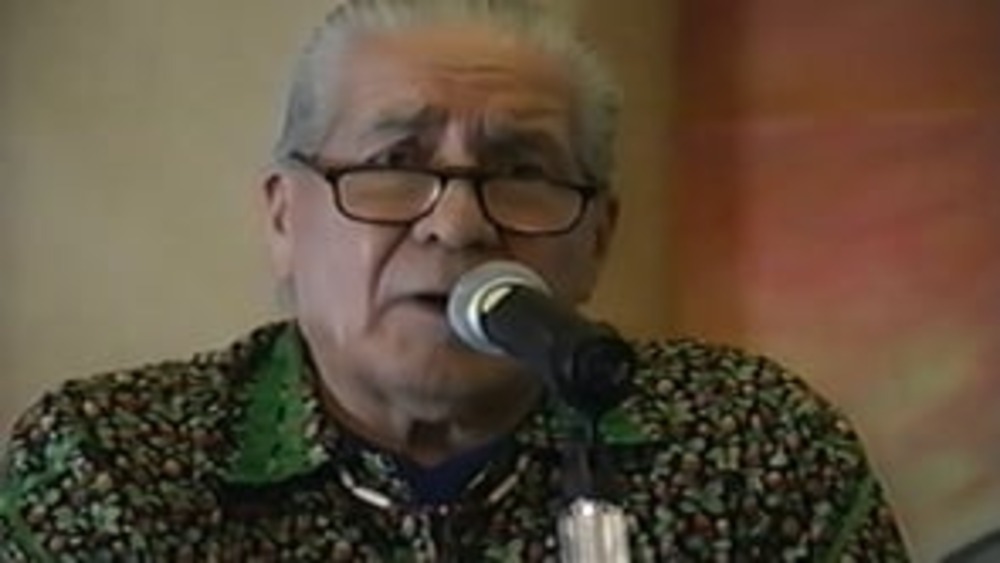
Honoring Nations: Oren Lyons: Governing Our Way to a Brighter Future
Onondaga Chief and Faithkeeper Oren Lyons shares his perspective on why governance matters to the sovereignty and long-term prosperity of Indigenous peoples, and stresses the importance of adhering to the long-taught instructions that have ensured the survival of those peoples to this day.
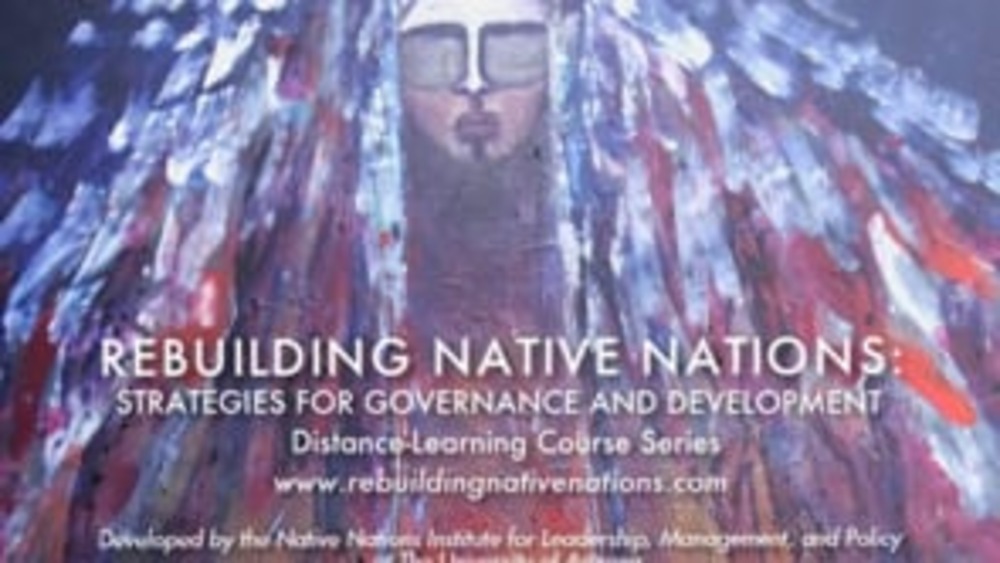
The Rebuilding Native Nations: Strategies for Governance and Development course series
This short video provides a comprehensive overview of NNI's "Rebuilding Native Nations: Strategies for Governance and Development distance-learning course series. The curriculum examines the critical governance and development challenges facing Native nations and surveys the breadth and…
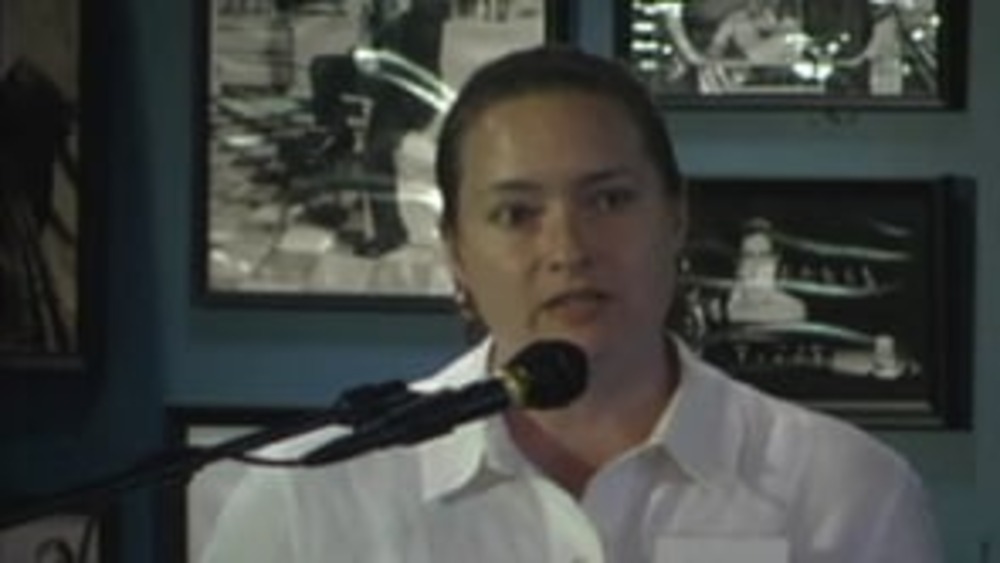
Honoring Nations: Miriam Jorgensen: Lessons to Take Home
NNI Research Director Miriam Jorgensen concludes the 2004 Honoring Nations symposium with her impressions about the lessons learned from the convening, from the great diversity among Native nations to the great strides they are taking when they devise their own solutions to the challenges they…
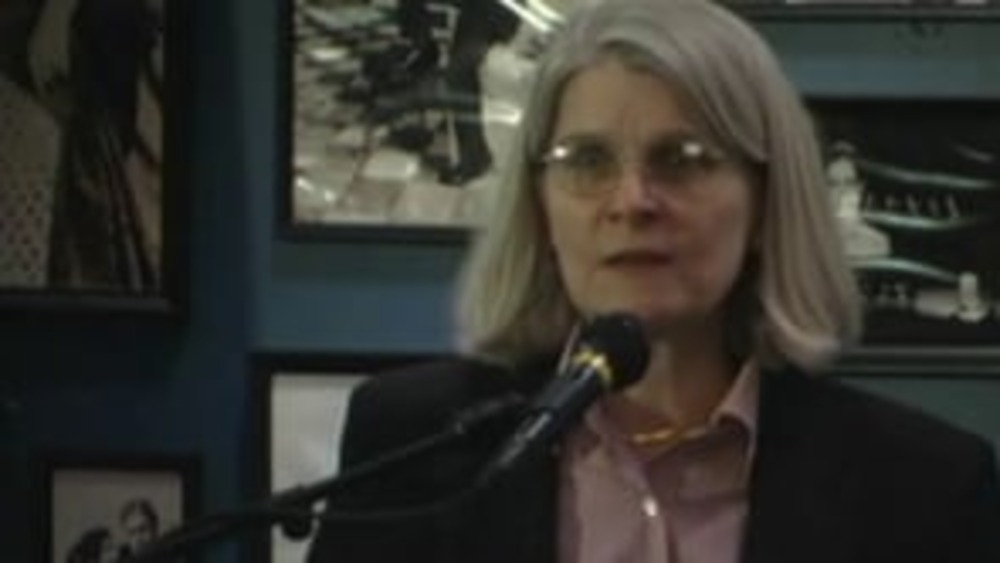
Honoring Nations: Julie Wilson: Child Welfare in Indian Country
Scholar Julie Wilson opens the session "Family Strengthening in Indian Country" with a discussion of recent research conducted by the Harvard Project on American Indian Economic Development that explores the role families play in improving child and community welfare in Indian Country, highlighting…
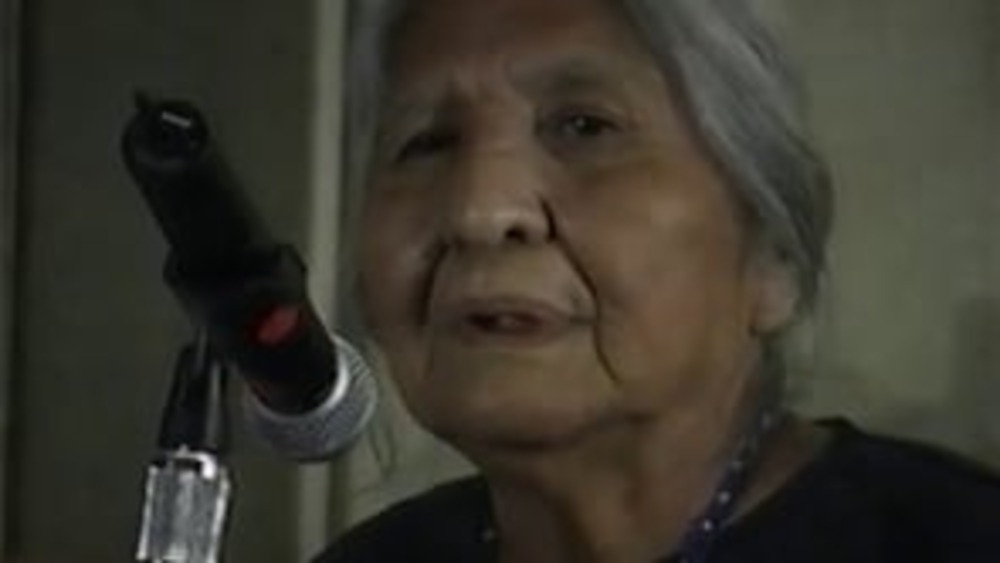
Honoring Nations: Jeanette Clark Cassa: San Carlos Apache Elders Cultural Advisory Council
Jeanette Cassa (1929-2004), Coordinator of the San Carlos Apache Elders Cultural Advisory Council (ECAC), discusses ECAC's work and the traditional Apache core values that its member elders work to instill in the younger generations of Apache people. She also stresses the importance of tribal…
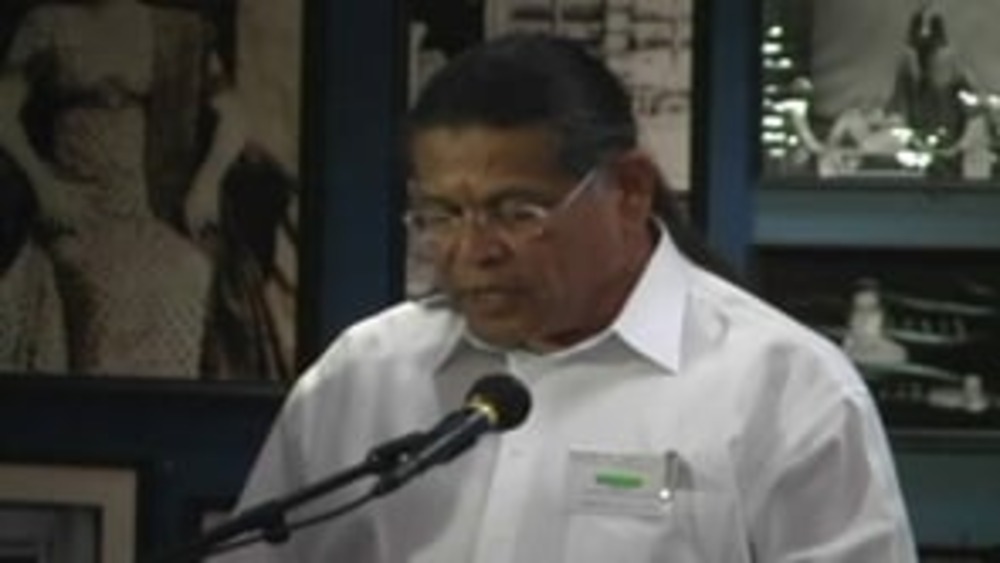
Honoring Nations: Anthony Pico: Building On the Success of Nation-Owned Enterprises
Anthony Pico, the longtime chairman of the Viejas Band of Kumeyaay Indians, discusses the larger purposes of economic development for Native nations, why it is important for nations leverage their gaming successes via the cultivation of other nation-owned enterprises and citizen-owned businesses,…
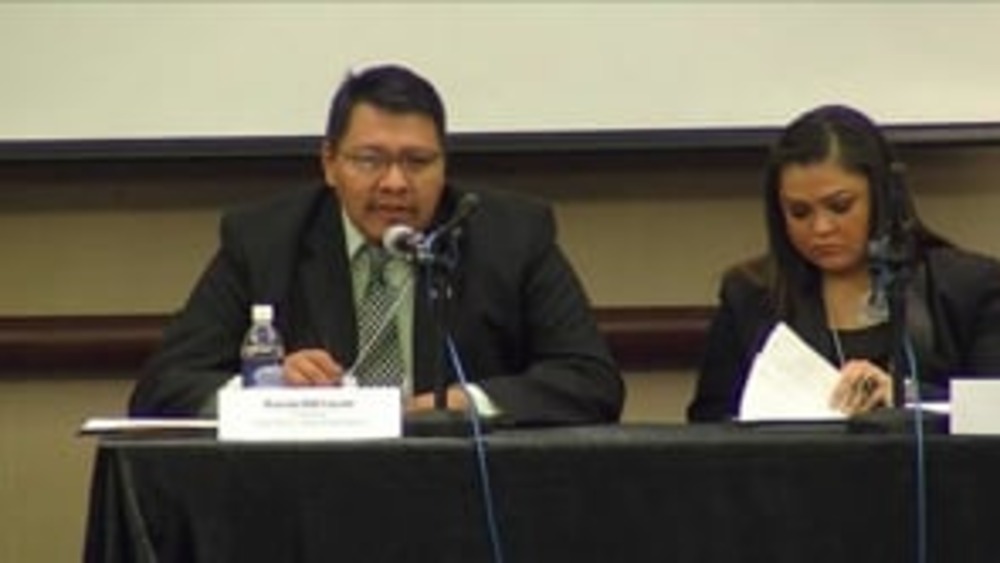
Jamie Fullmer, Rebecca Miles and Darrin Old Coyote: Our Leadership Experiences, Challenges, and Advice
Jamie Fullmer (former Chairman of the Yavapai-Apache Nation), Rebecca Miles (Executive Director and former Chairwoman of the Nez Perce Tribe) and Darrin Old Coyote (Chairman of the Crow Tribe) share what they wished they knew before they took office, the greatest leadership challenges they have…
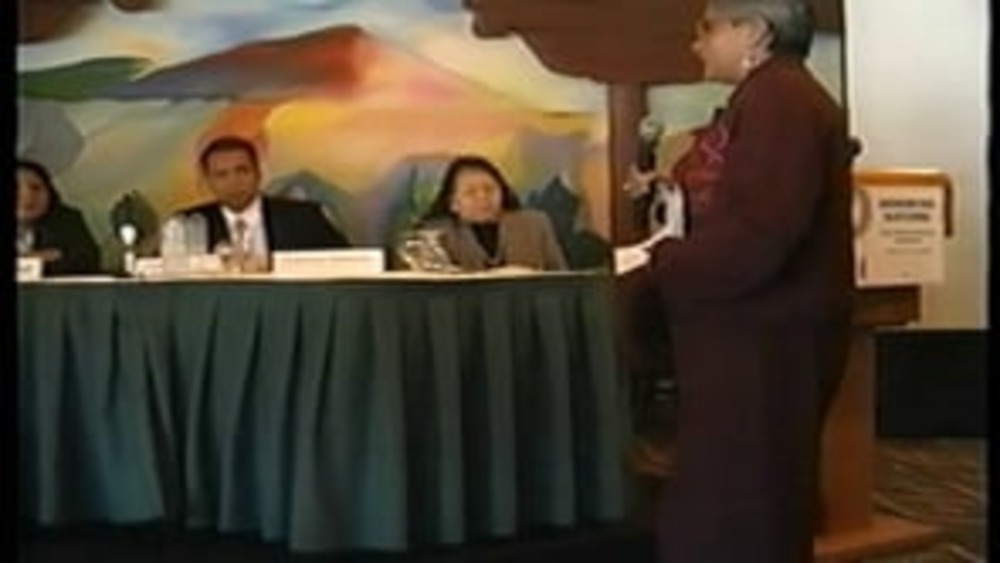
Honoring Nations: The Politics of Change - Internal Barriers, Opportunities and Lessons for Improving Government Performance
Moderator JoAnn Chase facilitates a wide-ranging discussion by a panel of Native nation leaders and key decision-makers about internal barriers inhibiting good governance and opportunities and lessons for improving government performance in Native nations.
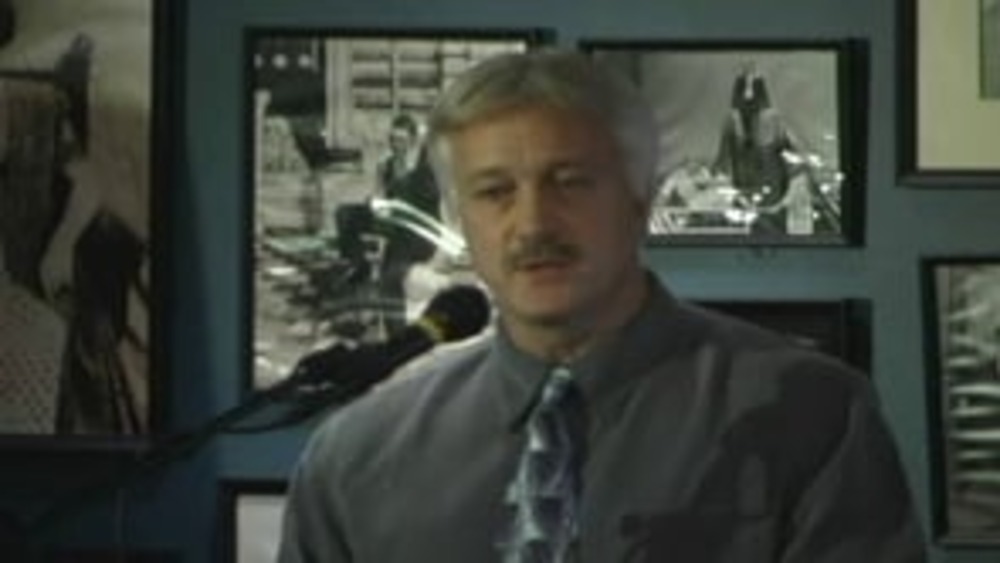
Honoring Nations: Rick George: The Umatilla Basin Salmon Recovery Project: Building on Success
Rick George, former Program Manager for Rights Protection and Environmental Planning with the Confederated tribes of the Umatilla Indian Reservation, shares what he sees as the foundational characteristics of the Umatilla Basin Salmon Recovery Project and other examples of successful,…
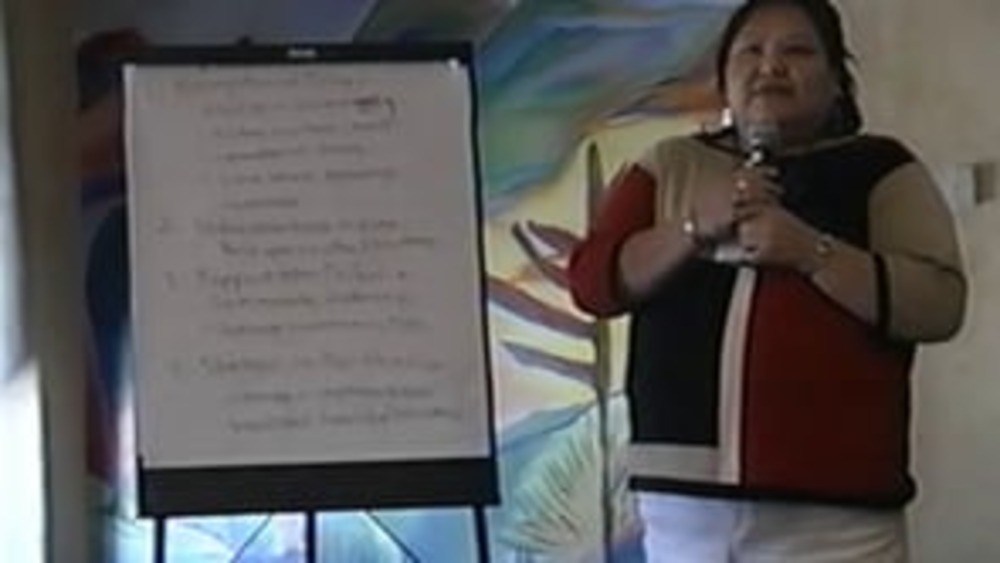
Honoring Nations: Elizabeth Woody: Environment and Natural Resources
Elizabeth Woody reports back to her fellow Honoring Nations symposium attendees the consensus from the environment and natural resources breakout session participants, synthesizing their deliberations into four key elements for nation-building success in the environmental and natural resource…
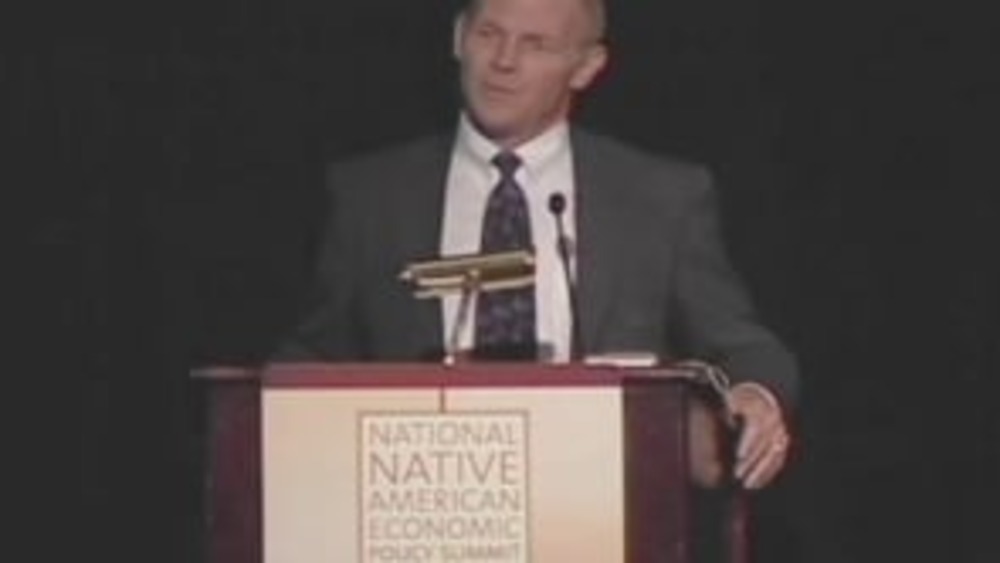
National Native American Economic Policy Summit: Joseph P. Kalt: Lessons from Indian Country
The National Native American Economic Policy Summit was held in Phoenix, Arizona, May 15-17, 2007, with more than 500 key stakeholders gathering to discuss the challenges to growing healthy, vibrant Native economies. In addition to identifying challenges, participants were asked to …
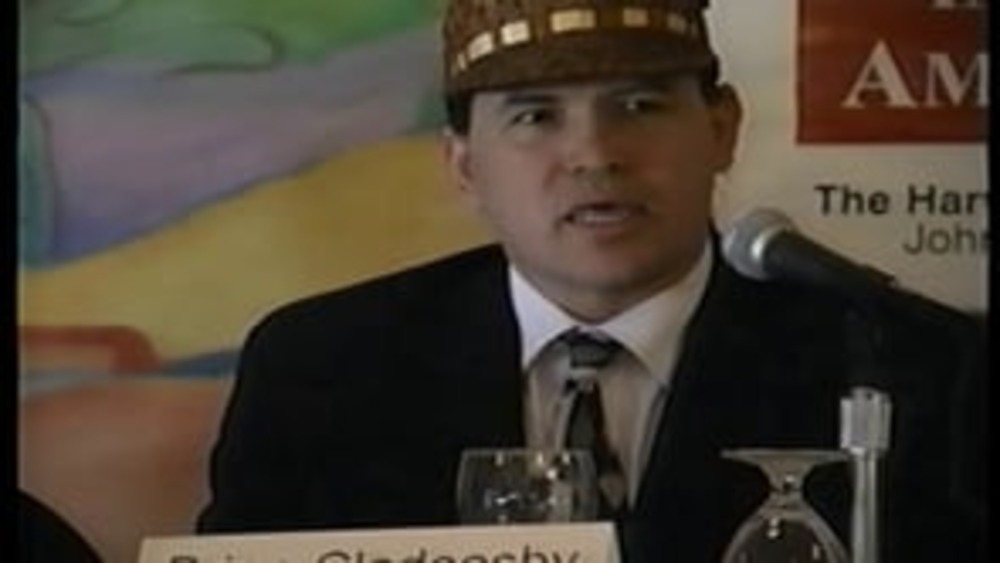
Honoring Nations: What is Good Tribal Governance and Why is it Important?: Tribal Leaders' Perspectives
Moderator Joseph P. Kalt facilitates a rich discussion by an impressive panel of Native nation leaders about the role leaders play in building and sustaining successful tribal programs.
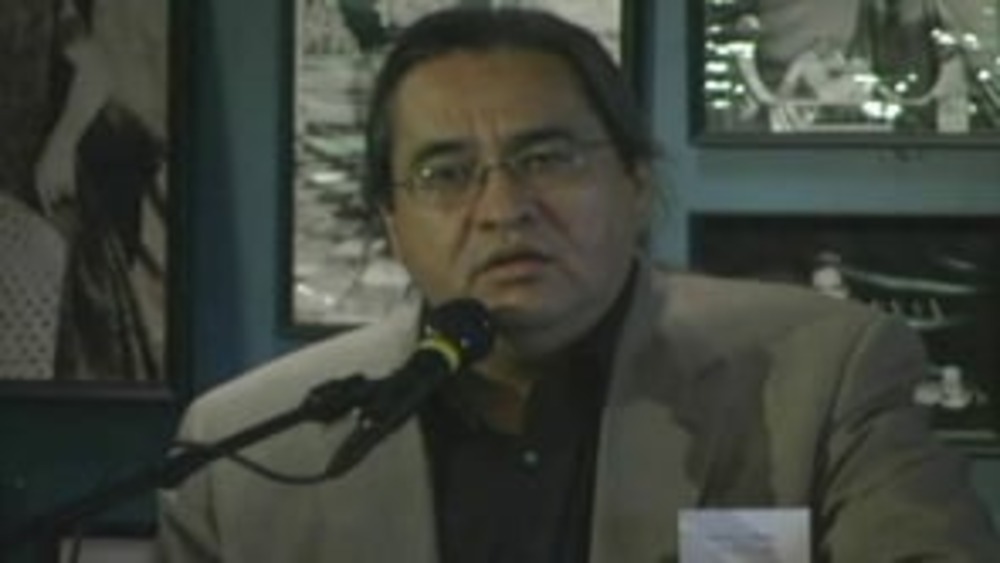
Honoring Nations: Manley Begay: So You Have a Great Program...Now What?!
"Forward-thinking" is often used to describe innovative programs. In remarks designed to frame the symposium session "So You Have a Great Program...Now What?!", Manley A. Begay, Jr. talks about strategic orientation, planning, and implementation as critical to sustaining the success of tribal…
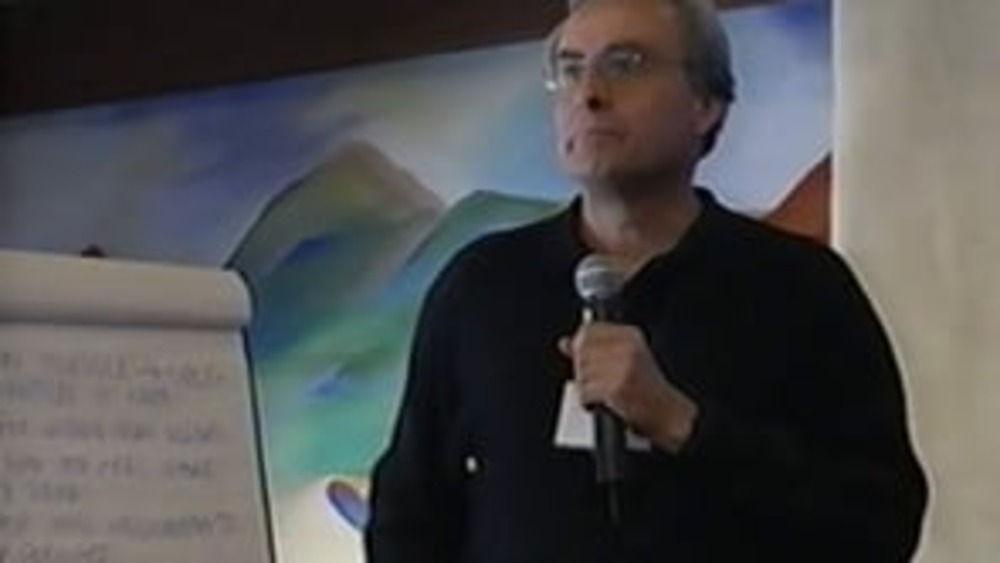
Honoring Nations: Roger Boyd: Economic and Community Development
Economic development specialist Roger Boyd (Navajo) reports back to his fellow Honoring Nations symposium participants the consensus from his group regarding some strategies that Native nations should think about and pursue in order to build a sustainable framework for economic development.
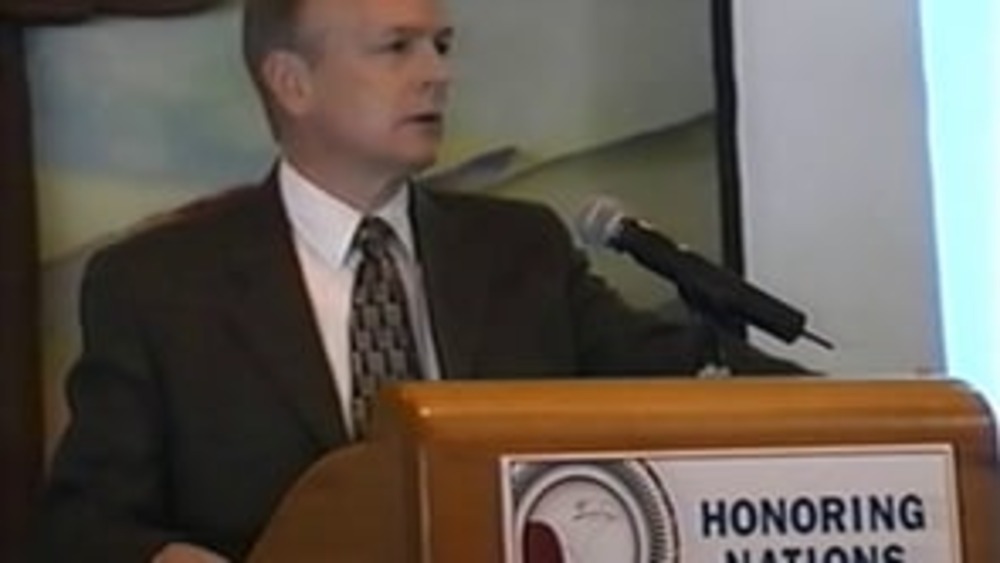
Honoring Nations: Stephen Cornell: Achieving Good Governance: Lessons from the Harvard Project & Honoring Nations
Co-director of the Harvard Project on American Indian Economic Development Stephen Cornell offers a review of how the Honoring Nations program evolved out of the nation-building movement and successes among Native nations.
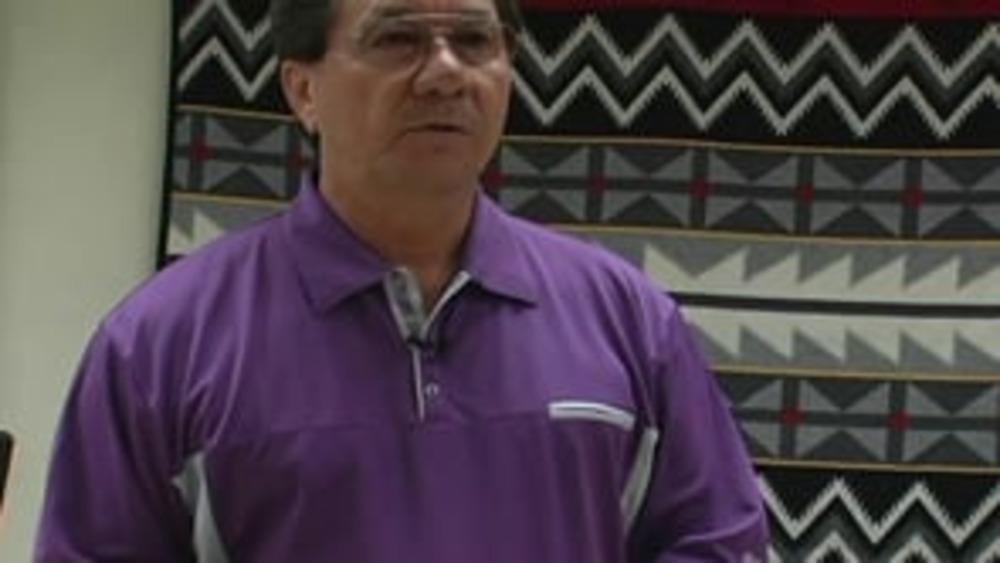
Michael K. Mitchell: A History of the Akwesasne Mohawk
Grand Chief Michael Mitchell of the Mohawk Council of Akwesasne offers students a broad overview of the governance history of the Akwesasne Mohawk and the efforts his people have made during his time in office to exercise true self-governance and rebuild their nation.
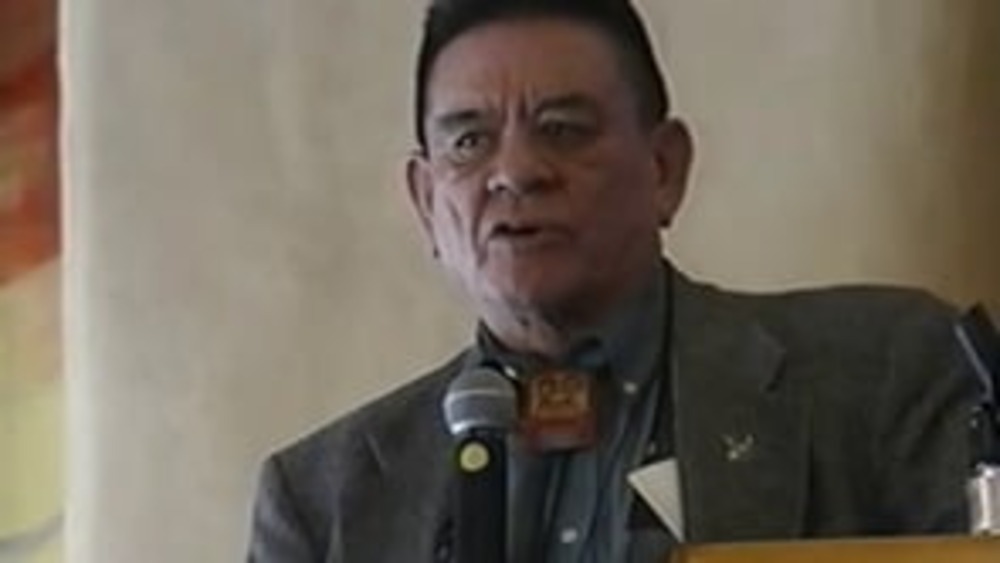
Honoring Nations: John McCoy: Intergovernmental Relations
John McCoy of the Tulalip Tribes offers advice to session participants about how to communicate tribal priorities in the intergovernmental law and policy arenas.
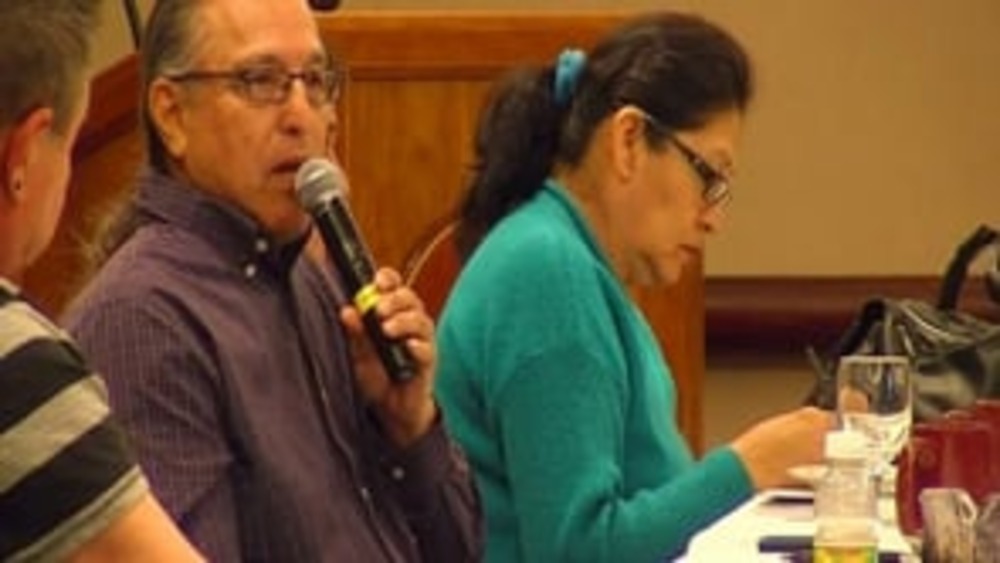
Jamie Fullmer, Rebecca Miles and Darrin Old Coyote: Our Leadership Experiences, Challenges, and Advice (Q&A)
Jamie Fullmer (former Chairman of the Yavapai-Apache Nation), Rebecca Miles (Executive Director and former Chairwoman of the Nez Perce Tribe) and Darrin Old Coyote (Chairman of the Crow Tribe) field questions from seminar participants about how they have negotiated the fundamental challenges of…
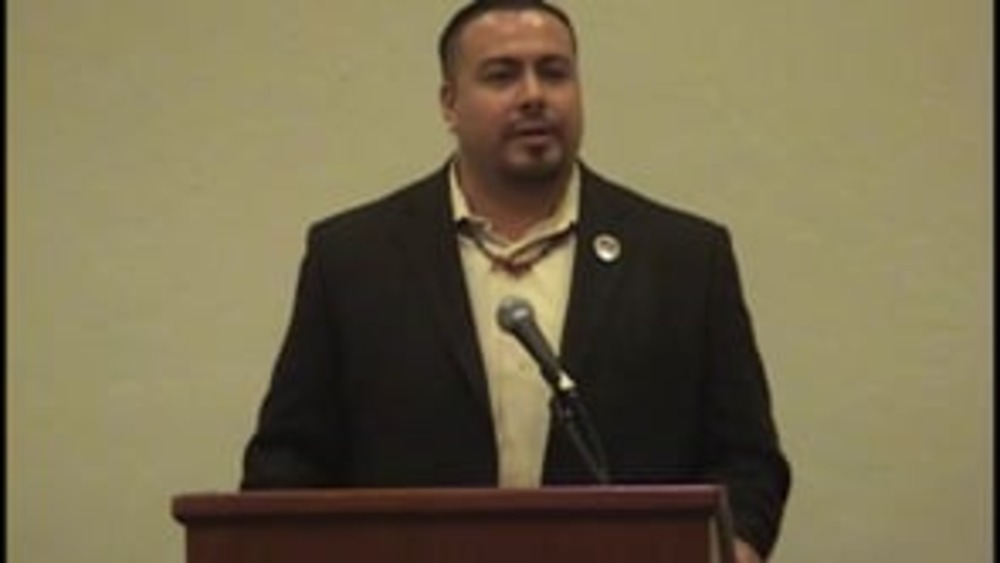
Jamie Fullmer: Taking a Strategic Approach at Yavapai-Apache Nation
Jamie Fullmer, former chairman of the Yavapai-Apache Nation, discusses how his nation developed a strategic approach to tackling its nation-building challenges during his time in office. He stresses the importance of Native nations and leaders conducting comprehensive of the state of their…
Pagination
- First page
- …
- 4
- 5
- 6
- …
- Last page
